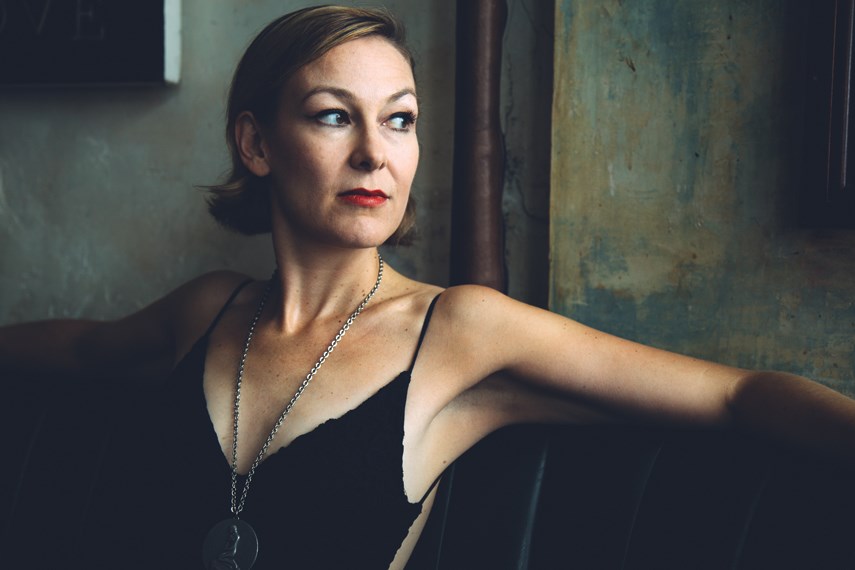Â鶹´«Ă˝Ół»Opera Festival presents Requiem for a Lost Girl: A Chamber Musical about Homelessness, SFU’s Goldcorp Centre for the Arts, 149 West Hastings St., Vancouver, Friday, May 4, 7:30 p.m. and Sunday, May 6, 2 p.m. Tickets: VO Ticket Centre, 604-683-0222, or online at .
Write what you know, they say.
A haunting vignette from the musical author’s past poured onto the pages. The performers of Requiem for a Lost Girl appear effortless in their delivery because they have lived and breathed the script.
A powerful story about homelessness, Requiem for a Lost Girl features Â鶹´«Ă˝Ół»Opera vocalists and those with a newfound voice who together create harmony. This musical collaboration, which is being presented during the Â鶹´«Ă˝Ół»Opera Festival next week, started with a conversation in 2013.
Actually, how Requiem came to be goes further back than that. It’s based on a true story – one that shook the musical’s writer, Onalea Gilbertson, to her core when she was 15.
“I just woke up one day and on the front page of the paper was her school photo and it said that she had run away from home, become addicted to drugs, was homeless and was working in the sex trade to survive and she was murdered,” says Gilbertson, describing her friend.
“And the way that the article spoke about her, there was so much shame and stigma around the fact that she had been experiencing homelessness and addiction and that she had been working in the sex trade. It was so unacceptable.”
That tragic memory of her friend stayed with Gilbertson as she went on with her life and studied music and dance in her hometown of Calgary. She started writing scripts 12 years ago and submitting her works to the prestigious New York Musical Theatre Festival.
Blanche: The Bittersweet Life of a Wild Prairie Dame, a theatrical song cycle about Gilbertson’s grandmother’s unbreakable spirit and how it helped her survive the Great Depression and Second World War, received accolades in the Big Apple at the musical theatre festival.
“I really like to do work that is based in personal storytelling,” says Gilbertson.

Requiem for a Lost Girl was created in one of Canada’s largest homeless shelters in Calgary. In 2009 Gilbertson created a choir and gathered vivid tales from the shelter, teaming up with composer Marcel Bergmann to create a sweeping composition to give the streets a voice.
The shelter singers were invited to perform in and contribute writing towards the piece about homelessness.
“And Marcel my collaborator and I decided that we didn’t want to just intellectualize this; we wanted to go and have people who are actually experiencing homelessness be a part of this piece – both performing on stage with us and contributing original writing,” explains Gilbertson.
The story of Gilbertson’s late friend and the stigma around her death serves as the foundation for Requiem for a Lost Girl, with 14 of Bergmann’s classical compositions melded into the musical.
In addition, songs and poetry written by people who have experienced homelessness are inserted around the prescribed songs.
“We are really trying to shine a light on stigma that happens when we’re talking about poverty, homelessness, addiction, mental health and missing and murdered women,” explains Gilbertson.
Already presented in New York, a mandate of the Requiem script is that it be produced in concert with a shelter or community organization where members have firsthand knowledge of homelessness.Â
In Â鶹´«Ă˝Ół»that organization is The Kettle Society, a non-profit society which provides support services to people with mental health disabilities.
For the past two years Kettle clients, tenants and staff have come together weekly as a choir and a writing group to rehearse Requiem for a Lost Girl, with Â鶹´«Ă˝Ół»Opera teaching artists as mentors.
The singers’ backstories are varied but they all have one common voice. They come from all walks of life spanning different generations. They are only characterized as alto or tenor.
“When you bring a group of people together to sing … there’s equality – everyone’s singing,” says Gilbertson. “This is changing people’s lives, including my own.”
Gilbertson says Kettle clients have said the choir “has given me self-esteem I never recognized I could have,” and “made me feel like I have something to look forward to.”Â
A relationship has been created between Â鶹´«Ă˝Ół»Opera, SFU Woodwards’ cultural programs and The Kettle, one that Gilbertson hopes will continue in the face of the nation’s homelessness crisis.
“This is a crisis that’s not going away – it’s actually getting worse,” she says.
When members of the Â鶹´«Ă˝Ół»Opera chorus and the Kettle choir, accompanied by a seven-piece chamber ensemble, raise their voices on stage next week, it’s Gilbertson’s hope that the audience walks away inspired.
 She adds the musical is a vehicle to spark a conversation and empower people to use their voice to enact change and help end the stigma.
“That’s something that a piece of art can do, it can just start to gently sew the seed of bringing communities together to talk to each other and to sort of break down this barrier of us and them,” says Gilbertson.
Two new opera productions are the showcase of the second annual Â鶹´«Ă˝Ół»Opera Festival, which runs April 28 to May 6. Pyotr Ilyich Tchaikovsky’s Russian lyric opera, Eugene Onegin, will be presented at the Queen Elizabeth Theatre and features Russian baritone Konstantin Shushakov as Onegin.
James Rolfe’s The Overcoat – A Musical Tailoring, a collaboration with Toronto’s Canadian Stage Company and Tapestry Opera and inspired by the 1997 smash-hit play of the same name, will be staged at the intimate Â鶹´«Ă˝Ół»Playhouse.
A number of special events are taking place during the nine-day opera festival, including street performers, food trucks and a big screen presentation in Queen Elizabeth Plaza.
Rounding out the Russian-themed festival are panel discussions, talks, keynote speakers, community events, the return of the ever-popular Opera Bar and a full day dedicated to families on May 5 including Prokofiev’s much-loved Peter and the Wolf.


